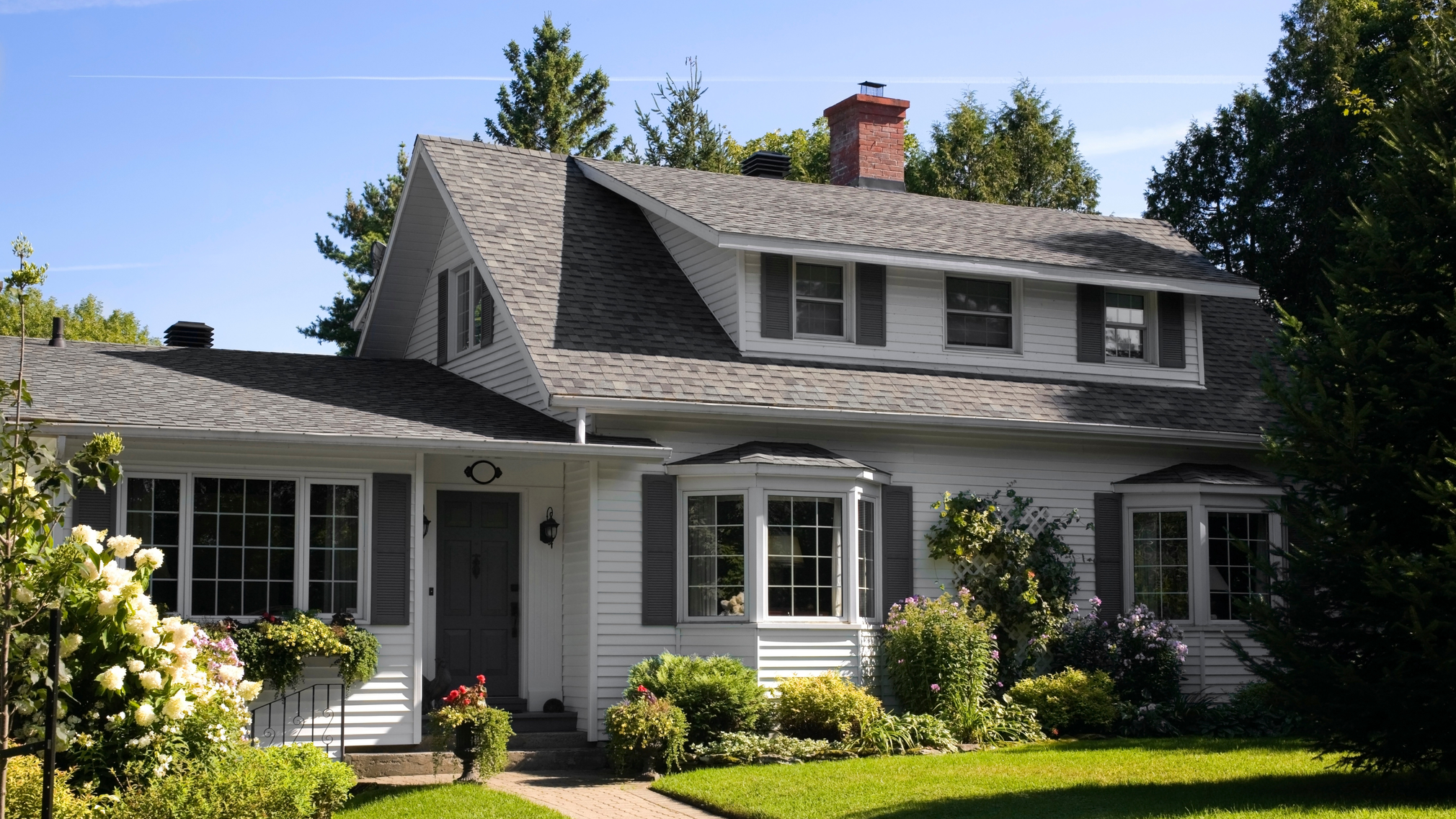Alternative Home Loan Programs to Consider


Written by Shawnna Stiver on June 2, 2025
Buying a home is one of life’s biggest milestones — and expenses. For many, understanding which home loan program suits their needs can feel overwhelming. The good news? Home loan programs today are designed to cater to a wide range of financial circumstances and lifestyles, ensuring your dream home remains within reach.
We’ll guide you through some alternative home loan programs to help expand your homeownership options beyond the traditional conventional loan. You may be surprised to learn that living in a rural area presents unique financing options, or that your military service comes with some additional mortgage perks. Each home loan program offers unique benefits to qualified applicants. Learn which programs meet your needs and how to qualify.
Get pre-qualified with us at Zillow Home Loans in as little as five minutes.*
FHA single family mortgage programs
Single family mortgage programs offered by the Federal Housing Administration (FHA) help lenders offer financing options to low- to moderate-income home buyers and first-time homebuyers. FHA loans can be used to finance a home purchase, refinance, renovate or repair a home, or improve the energy-efficiency of a home. Because the FHA backs their loan programs, lenders can offer FHA loan options with more lenient lending requirements compared to the more commonly used conventional loan.
Types of FHA loans
- FHA Traditional Loans: For standard home purchases.
- FHA 203(b): The most common choice for buying or refinancing a home that needs some repair work.
- FHA 203(k): For purchasing and renovating fixer-uppers.
- FHA Energy Efficient Mortgage (EEM): Ideal for funding energy-efficient home upgrades.
- FHA Home Equity Conversion Mortgages (HECM): A loan option designed for senior homeowners to convert home equity into cash income.
- Section 245(a): A graduated-payment mortgage is ideal for buyers who have limited cash flow now, but whose earnings will increase over time.
- Title I loans: Helps low- and moderate-income borrowers who can’t afford to make significant home repairs.
Minimum requirements
- A credit score of at least 580 with a 3.5% down payment, or a credit score between 500-579 with a 10% down payment
- The home you’re financing with an FHA loan must be a one-to-four unit structure that you live in as your primary residence
- A debt-to-income (DTI) ratio below 43% in most lending scenarios
- FHA mortgage insurance coverage
When to consider an FHA loan
- You're a first-time homebuyer looking for a low down payment mortgage option.
- You’re trying to qualify for a mortgage with down payment or closing cost assistance.
- You're looking for a lower interest rate mortgage.
- You have a credit score below 680.
- You're considering assuming an FHA loan.
- You plan on using rental income to qualify.
USDA rural development mortgage programs
The U.S. Department of Agriculture (USDA) also offers single family mortgage programs to help low- and moderate-income households in rural and suburban areas. USDA loans can be used to finance a home purchase or make home repairs to properties in rural communities. The main draw to USDA loans is that they do not require a down payment and often come with interest rates as low as 1%.
Types of USDA loans
- Guaranteed Loans: Backed by USDA-approved lenders, offering 100% financing with zero down payment.
- Direct Loans (Section 502): Funded directly by the USDA, benefiting low-income families.
- Repair and Rehabilitation Loans & Grants (Section 504 Home Repair Program): Loans are for improving safety and living conditions in existing homes, while grants help remove health and safety hazards for elderly-very low-income homeowners.
- Rural Housing Site Loans: Supports public and private non-profits in building homes for families in rural areas as part of the Self-Help Program.
Minimum requirements
- Guaranteed Loans require a median household income below 115% for the designated area.
- Direct and Repair Loans require an adjusted income at or below the applicable low-income limit for that area.
- The home you’re financing with a USDA loan must be a single-family dwelling located in a USDA-eligible rural area and used as a primary residence.
- An annual guarantee fee of 0.35% of the loan amount and upfront fee of 1% of the loan amount.
- Proof of citizenship.
When to consider a USDA loan
- You want to purchase a home in a rural or suburban area.
- You don’t have money for a down payment and are looking for a 100% financing mortgage option.
- You’re interested in a mortgage with below-market interest rates.
- You’re an individual or family with limited income.
- You have limited funds available for closing costs and want to use seller concessions to cover some or up to 6% of closing costs.
- You’re looking for a mortgage option that doesn’t require mortgage insurance.
Mortgage programs for Veterans
VA loans are mortgages backed by the U.S. Department of Veterans Affairs, reserved for eligible veterans, active-duty service members, and their families. VA loans provide significant benefits, including zero down payment, making them ideal for veterans who haven’t been able to build credit or save money over a long period.
Types of VA loans
- VA-backed purchase loans – For buying or building a primary residence.
- VA interest rate reduction refinance loan (IRRRL) – For refinancing to a lower interest rate.
- VA cash-out refinance – Access home equity for expenses like home improvements.
- Native American direct loan (NADL) – Available to eligible Native American veterans for homes on federal trust land.
- VA energy efficient mortgage (EEM) – Add funds for energy-efficient home improvements.
Minimum requirements
- To qualify for a VA loan, you’ll need two years of consistent income.
- A debt-to-income ratio of no more than 41%.
- Meet entitlement requirements (which decide how much of your loan is guaranteed by the VA)
- Most VA lenders expect a credit score of 620 or higher. However, the VA doesn’t set minimum credit score requirements or require mortgage insurance.
- Pay a one-time VA funding fee, unless exempt.
When to consider a VA loan
- You’re a veteran, military service member, or eligible surviving spouse.
- You want to secure affordable home financing without the burden of a large down payment.
- You’re looking for a mortgage option that doesn’t require private mortgage insurance.
First-time home buyer programs
First-time home buyer loan programs are designed to make homeownership more accessible for individuals and families purchasing their first home. These programs often combine several benefits, including lower down payments, reduced interest rates, and educational resources.
Down payment assistance
Down payment assistance (DPA) programs help reduce the upfront cost of buying a home and are often funded by state housing finance agencies, nonprofits, or local government entities. You’ll typically see these programs offered through grants, forgivable loans, deferred payment loans, or low-interest second mortgages.
Grants
Home-buying grants are awarded by government agencies, nonprofits, or community organizations and don’t need to be repaid. They are designed to support low- to moderate-income buyers, first-time homeowners, and individuals in underserved communities. Common grant sources include State Housing Finance Agencies (HFAs), Community Development Block Grants (CDBGs) funded by HUD, and nonprofit and employer-sponsored grants.
State and local programs
State and local home buyer programs often offer some of the most impactful and accessible forms of assistance. These programs may combine loans, grants, tax credits, and educational resources to support buyers in a specific state, city, or county.
Programs often give preference to residents, first-time buyers, public service employees, or those purchasing in designated revitalization areas. To explore what's available in your region, contact your local housing authority or check with your state’s housing finance agency.
HUD’s special home buying programs
The U.S. Department of Housing and Urban Development (HUD) also offers specialized loan programs to provide tailored solutions for specific demographics and professions.
Section 184 Loans for Native Americans
The Section 184 Indian Housing Loan Guarantee Program assists Native American and Alaska Native families in accessing homeownership. With low down payment requirements and flexible underwriting, it applies to homes both on and off tribal land.
Section 811 for People with Disabilities
HUD’s Section 811 program subsidizes affordable housing and ensures access to supportive services. It prioritizes community-integrated living for individuals with disabilities.
Good Neighbor Next Door Program
Law enforcement officers, teachers, emergency medical technicians, and firefighters can purchase homes in eligible revitalization areas at a 50% discount through the Good Neighbor Next Door HUD initiative.
Public Housing Residents Program
The HUD Public Housing Residents Program helps eligible low-income families transition from renting to owning by allowing them to purchase public housing units or other homes with the assistance of their public housing agency. The program may include financial counseling, subsidies, and other support to make homeownership more affordable and sustainable for qualifying participants.
Next steps for your home search
Choosing the right loan program can feel daunting, but understanding your options is crucial to finding the loan that aligns with your financial situation and homeownership goals.
If you’re still unsure which home loan program suits your needs best, consider reaching out to a trusted Zillow Home Loans’ loan officer*. They can help you explore your options, understand eligibility requirements, and guide you through the application process, bringing you one step closer to your new home.
*Zillow Home Loans; An equal housing lender. NMLS #10287
How much home can you afford?
At Zillow Home Loans, we can pre-qualify you in as little as 5 minutes, with no impact to your credit score.
Zillow Home Loans, NMLS # 10287. Equal Housing Lender
Get pre-qualifiedHow much home can you afford?
See what's in reach with low down payment options, no hidden fees and step-by-step guidance from us at
Zillow Home Loans.
Zillow Home Loans, NMLS # 10287. Equal Housing Lender
Calculate your BuyAbility℠



